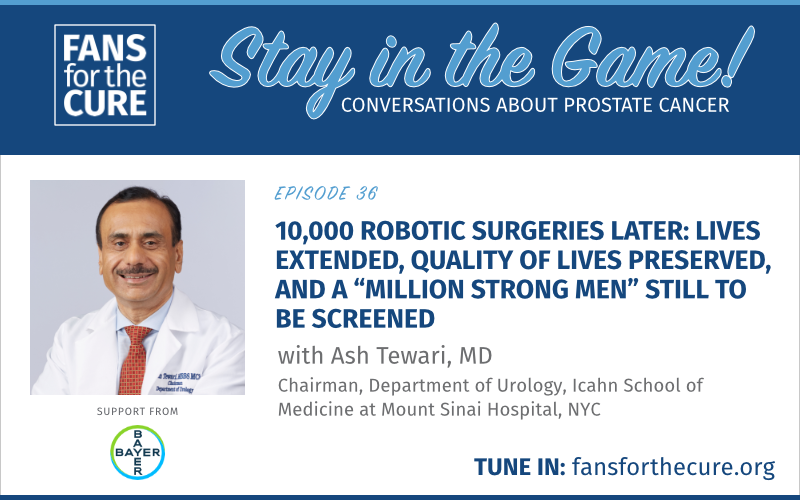The link between nutrition and wellness has long been established, even popularized by the phrase “you are what you eat”: very basically, the food that you eat every day affects your health, energy level, mood, and behavior. This means that the choices you make in the grocery store, kitchen, and when dining out play an important role in your general health and lowering the risk of disease as well as during illness and recovery, when nutritional needs are at their peak.
Fortunately, there is plenty of evidence-based information that can help guide smart and healthier food choices that pay-off with time, including as it applies to prostate health. Do you want to take control of your health? Do you want to reduce your risk of prostate cancer or a recurrence after treatment? Here are some initial tips to get you started on a path to wellness, a healthier you, and a healthier prostate.
Eat Fruits and Vegetables
Studies have shown that a higher intake of fruits and vegetables relates to lower risks of diabetes, heart disease, and cancer. The recommended daily intake for vegetables is at least five (5) servings per day. One serving is equal to 1 cup of raw vegetables or ½ cup of cooked vegetables. The recommended daily intake for fruit is at least three (3) servings per day. One serving is equal to 1 whole fresh fruit (e.g., apple, banana, pear), ½ cup cut fresh fruit (e.g., pineapple, melon, blueberries), and/or ¼ cup dried fruit. Whether fresh, frozen, or even canned
(drained), eating fruits and vegetables helps to provide the body with essential nutrients.
Anti-Prostate Cancer Superfoods
Some fruits and vegetables that are worth highlighting to help reduce prostate cancer risk and/or recurrence after treatment are tomatoes and cruciferous vegetables. Cruciferous vegetables include broccoli, cauliflower, cabbage, Brussels sprouts, kale and collard greens. By including these foods into your regular eating pattern, your body is provided with vitamins, minerals, fiber, and phytochemicals that have been shown to exhibit anticancer properties in
experimental studies.
Tomatoes contain a compound called lycopene, a carotenoid known for its antioxidant properties. Lycopene has been associated with a lower risk of prostate cancer in several studies, likely due to its ability to help limit inflammation and protect cells. Eating up to 30 mg per day from whole food sources of lycopene may be beneficial for prostate health. This equals ¾ cup of tomato sauce, juice or soup, 6 tablespoons of tomato paste, or 8 raw tomatoes. Tomatoes can be purchased fresh or canned, and cooked tomato products, such as tomato juice, tomato soup, and tomato sauce, have the highest amounts of lycopene. Tomatoes are a great addition to omelets, sandwiches, soup, and pasta or simply roasted on their own.
Cruciferous vegetables contain isothiocyanates and indoles that have been shown to hinder the growth of prostate cancer cells and have also been linked to a reduced risk of prostate cancer recurrence and metastasis. Eating cruciferous vegetables raw or lightly cooked—steamed, sautéed, or stir fried—appears to increase the body’s ability to absorb important nutrients. These vegetables can be purchased fresh, canned, or frozen, and some frozen varieties can be microwave-steamed in the bag for added convenience. Cruciferous vegetables can be added to omelets, soups, sandwiches, smoothies, salads or sautéed with some whole grains and beans for a quick and hearty meal.
Tomatoes, cruciferous vegetables, along with other whole foods are valuable components to include in your meals and snacks. A healthy eating plan is all about making the right choices in the store, at home, and when eating out. No step is too small when making healthy changes to your eating habits.


